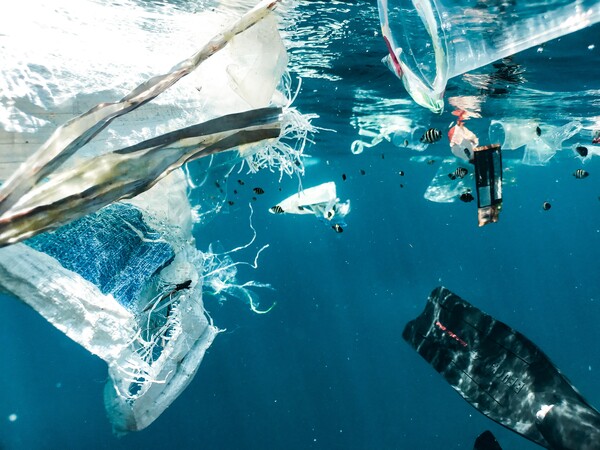Plastic Odyssey: a round-the-world voyage committed to the fight against plastic pollution

The Plastic Odyssey expedition embodies the transformation of plastic waste into a precious resource. This bold initiative mobilizes a research and demonstration vessel, which becomes a floating laboratory, criss-crossing the oceans in search of innovative solutions to give plastic a new life. The main aim of this expedition is to raise public awareness of the alarming consequences of plastic pollution, while demonstrating that this waste can be recycled in a variety of ways.
During the first stopover in Dakar, Senegal, the Université Gustave Eiffel made a significant contribution to this mission by presenting the Recityplast project. At each stage of the voyage, the entire ship is transformed into a veritable open-air laboratory, hosting researchers, entrepreneurs and experts in the field of plastic waste management.
Among those involved, Lamine Dieng, Research Director at the Structure Métalliques et Câbles (SMC) Laboratory at the Université Gustave Eiffel, comments: "When you arrive in Dakar, you see plastic everywhere. One of the main aims of this project is to raise people's awareness of the risks associated with this form of pollution by demonstrating that it is a waste product that can be transformed into a valuable resource."
While the recycling of plastic waste in Senegal is an environmental necessity that requires, first and foremost, the development of new technologies, it can also be part of an economic and social approach. This is the aim of the Recytiplast project, launched in 2020 and supported by the I-SITE FUTURE as an "Impulsion" project.
Born form a Franco-Senegalese partnership, Recytiplast aims to study the technical and social feasibility of recycling plastic waste in order to improve housing in rural areas. In concrete terms, this involves organizing the transformation of residues that are harmful to the environment or health, into innovative, useful and profitable materials.
"What makes Recytiplast unique is its ability to bring together skills from fields as varied as materials science, humanities and social sciences, as well as local players. This exceptional interdisciplinarity is rarely seen in research projects," notes Laetitia Van Schoors, director of research at the Comportement Physico-chimique et Durabilité des Matériaux (CPDM) laboratory at Gustave Eiffel University, who is co-directing the project with Lamine Dieng.
The two researchers are working in particular with IMT Nord Europe, the University of Le Mans and the NGO GRET, as well as with Senegalese partners such as the Université Cheikh-Anta-Diop de Dakar (UCAD), rural communities and town halls...
This presence in Dakar represents a major opportunity for the Recityplast project. In addition to raising the profile of the research carried out by the Gustave Eiffel University in this field, this adventure was an opportunity to popularize the research and pass on valuable knowledge to the population visiting the boat during the workshops organized by the crew.
"It was a mutually enriching collaboration: Simon (editor's note: Simon Bernard, co-founder of Plastic Odyssey) needed our expertise, just as we needed him to spread our knowledge," explains Lamine.
A 70-minute documentary film awaits you! Directed by Pierre de Parscau and Olivia Schaller, it is produced in collaboration with Les Gens Bien Production and Plastic Odyssey.
It will be broadcast on October 25, 2023 at 8:55 pm on CANAL+ DOCS, followed by a second broadcast on October 26 at 10:30 pm on CANAL+ and myCANAL.
The film offers an insight into the history of the project, the years of work on the ship, and highlights three memorable expedition stops in Lebanon, Senegal and Guinea.
Further information :
|